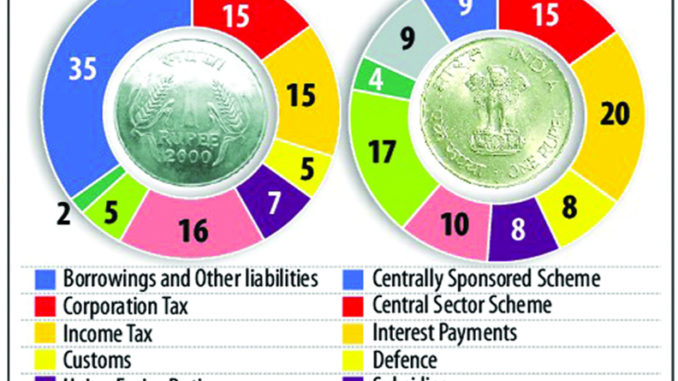
The government proposals related to the direct taxes will further simplify the tax system, promote voluntary compliance by taxpayers, and reduce litigation, Union finance minister Nirmala Sitharaman said on Tuesday, Feb 1, while presenting the budget for the fiscal year 2022-23. In order to increase deterrence among tax evaders, Sitharaman proposed to provide no set off, of losses, against undisclosed income detected during search operations. Underlining the existing ambiguity, Sitharaman said that set off, of losses, are brought forward against undisclosed income detected in search operations to avoid payment of tax.
“It has been observed that in many cases where undisclosed income or suppression of sales etc. is detected, payment of tax is avoided by setting off, of losses,” the finance minister said. “In order to bring certainty and to increase deterrence among tax evaders, I propose to provide that no set off, of any loss shall be allowed against undisclosed income detected during search and survey operations,” she added.
Sitharaman also proposed new measures to reduce litigation involving identical issues in order to save time and resources. The litigation will be reduced by restricting the filing of a further appeal if the question of law is identical to a question is identical to the one pending in appeal before the jurisdictional High Court or Supreme Court. The filing will be deferred till such question of law is decided by the jurisdictional High Court or the Supreme Court.
“It has been observed that a lot of time and resources are consumed in filing of appeals which involve identical issues…This will greatly help in reducing the repeated litigation between taxpayers and the department,” Sitharaman said in the budget speech.
‘Didn’t increase tax burden on people,’ says FM; explains why
Nirmala Sitharaman said that she did not attempt to increase the taxes in the Union Budget she presented in Parliament today. She added that the government has continued this tradition from last year, when the Prime Minister Narendra Modi directed the officials to not burden the common man with higher taxes during Covid-19. “I did not increase the taxes. I want to repeat this – I didn’t do it last year as well as this year. I did not make any attempt to earn a single paisa through taxes,” Sitharaman said at a post-Budget press conference. “Last year, the Prime Minister had ordered us not to increase taxes during the pandemic time, even if there is huge fiscal deficit. He said the public should not face the additional burden of taxes during this time.”
‘Crypto tax’ is here. India imposes 30% tax on proceeds of digital assets
In a significant move that is believed to have brought cryptocurrencies and non-fungible tokens (NFTs) under a tax net, finance minister Nirmala Sitharaman on Tuesday, Feb 1, announced a 30 per cent tax on any income from the transfer of virtual digital assets, specifying that no deductions and exemptions will be allowed.
The gifts are to be taxed on the hands of the recipient, she said, adding that there will also be a 1 per cent tax deducted at source (TDS) on the payments made for the transfer of digital assets. It was also announced that any loss made on the transaction of such digital assets cannot be set off against any other gain.
“Any income from virtual digital assets is taxable at 30 per cent,” the finance minister said while presenting the federal budget. “There will be no deduction with exception of the cost of acquisition. The TDS is applicable beyond a specified monetary threshold, and the gift of virtual currencies is taxable in the hands of the recipient.”
In her Budget announcement, finance minister Nirmala Sitharaman also said that the country’s central bank, the Reserve Bank of India (RBI), will introduce a digital currency in the next financial year using blockchain and other supporting technology.
“Introduction of a central bank digital currency will give a big boost to the digital economy,” Nirmala Sitharaman said on Tuesday while presenting the federal budget. “Digital currency will also lead to a more efficient and cheaper currency management system.” Ahead of the Union Budget announcement this year, speculation was rife regarding the central government’s official stance towards cryptocurrencies and any potential taxes that might be imposed on the same. Source: HT





Be the first to comment